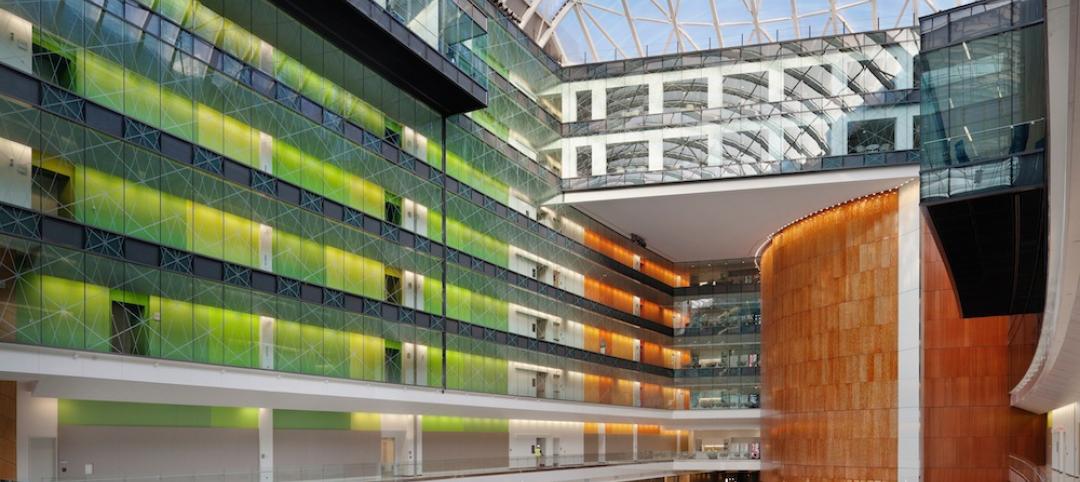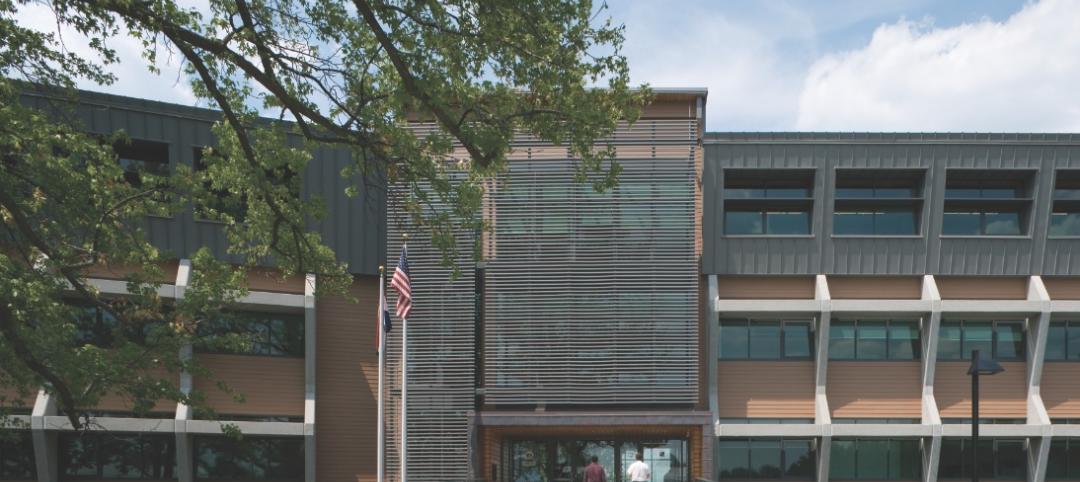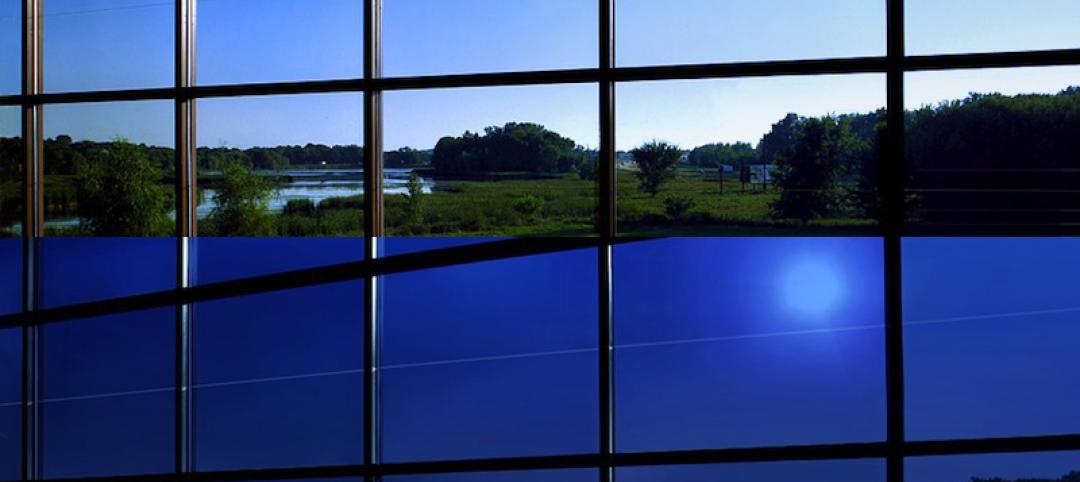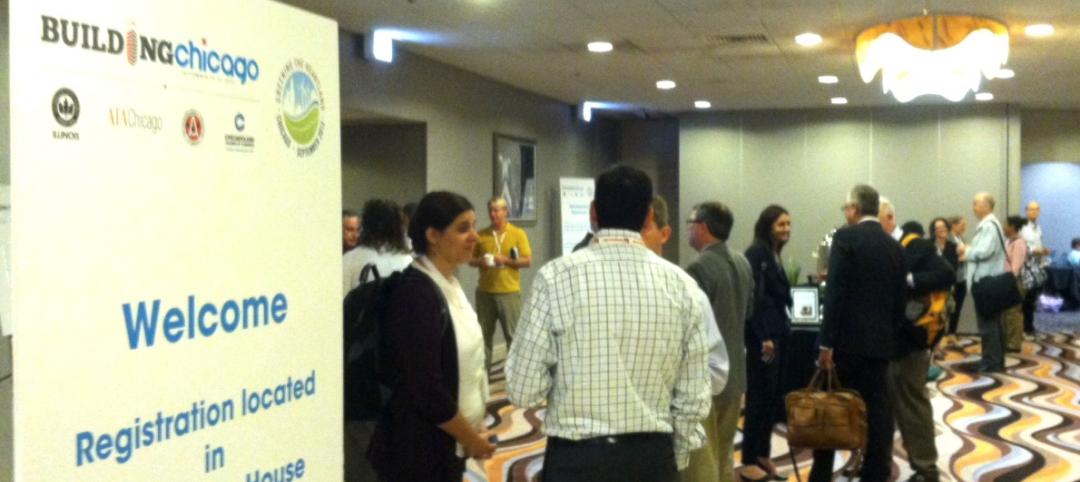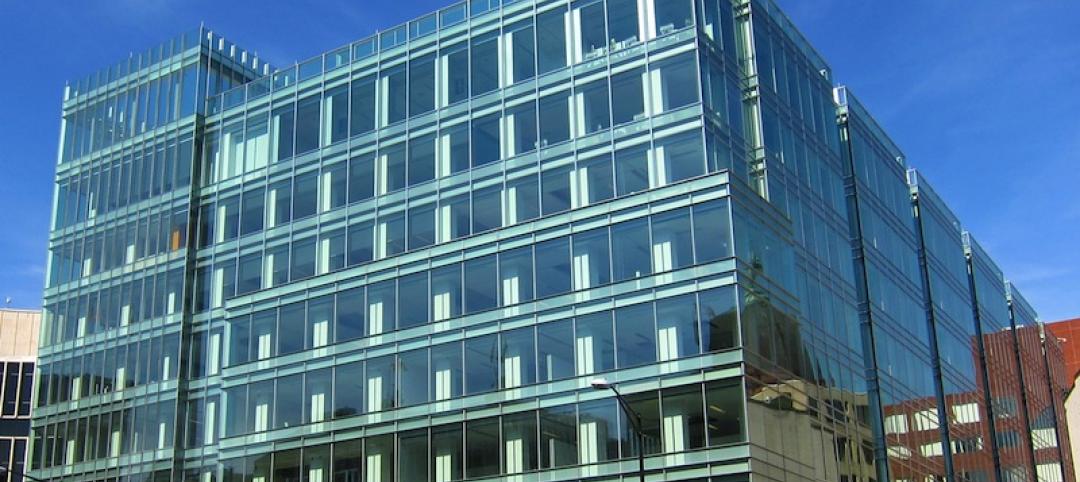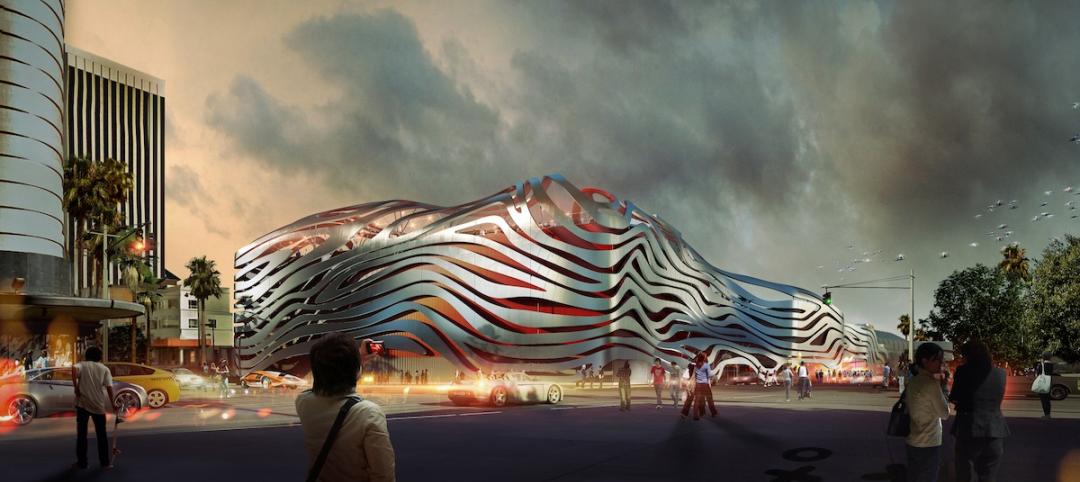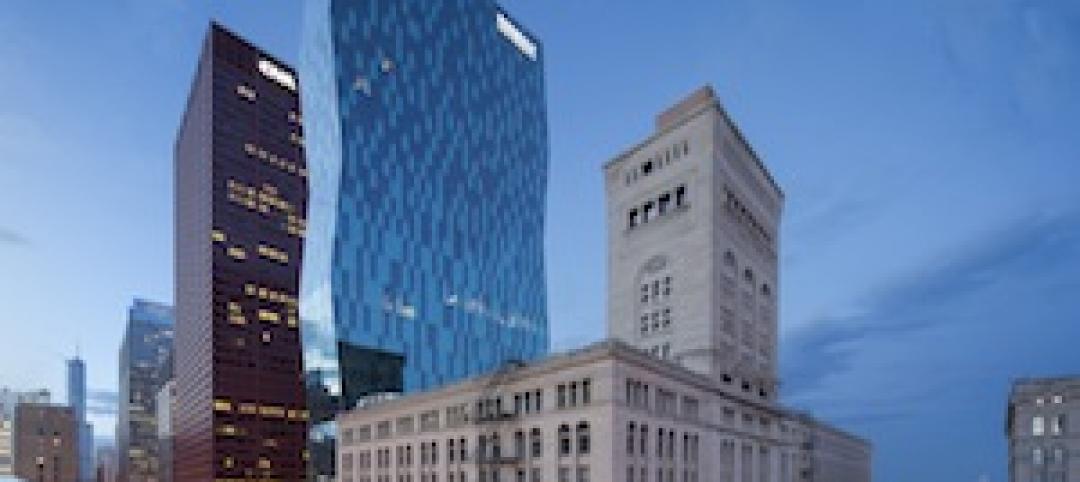The Philadelphia Art Commission has weighed in somewhat unfavorably on Robert A.M. Stern's design for the Museum of the American Revolution in Philadelphia.
According to The Inquirer, the commission didn't offically reject the $150 million proposal, but on Feb 5 it did communicate concerns about the building's design. Specifically, the commission asked Stern to eliminate a cupola, add eye-level windows on the ground floor, and rethink the building's composition.
The museum, supported by H.F. "Gerry" Lenfest, the Oneida Indian Nation, and the state of Pennsylvania, will exist in a space currently dominated by a red brick visitor center built for Philadelphia's Bicentennial in 1976. The commission has approved the demolition of the visitor center so that museum construction can start in the summer of 2014.
"This building really has a big-box-store mentality with a little bit of ornament attached," David B. Brownlee, a Penn art historian and vice chair of the Design Advocacy Group, told Inga Saffron of The Inquirer. Read the full report from The Inquirer.
Here is the firm's essay on the current design scheme for the museum (via www.ramsa.com):
The Museum of the American Revolution, anchoring the eastern end of Independence National Historical Park, is designed to introduce visitors to the American Revolution with its extraordinary collection of historical artifacts and contemporary interpretations demonstrating the continued worldwide importance of the Revolution.
Set amidst buildings of national and architectural significance—facing the First Bank of the United States (Samuel Blodgett, 1795), near William Strickland's Merchant's Exchange (1834) and the U.S. Custom House (Ritter & Shay, 1934)—the Museum will carry forward the restrained Classicism that heralded the birth of the Republic.
The Museum will address the corner of Chestnut and Third Streets with a broad plaza and an inviting entry facade that offers a glimpse at the treasures within through a two-story glazed portico. The museum shop and a café that opens to the sidewalk will enliven the Third Street facade; above, the wall that conceals the galleries will be articulated with brick quoining and recessed blind brick arches, accented with stone at the spring points and keystones and housing stone apsidal niches.
Our design organizes the Museum around a skylit central interior court. The ground floor will accommodate a multi-use theater and a changing exhibition gallery. Within the court a grand elliptical stair will take visitors up to 18,000 square feet of galleries and a theater dedicated to the exhibition of George Washington's marquee tent, one of the Museum's most dramatic holdings.
The Museum's third floor will offer rooms for conferences, symposia, and social events; two broad terraces overlooking the First Bank will command views to Independence Hall and the modern-day Philadelphia skyline.
The Museum will provide state-of-the-art storage and conservation spaces, following best practices for sustainable museum design to target LEED Silver certification.
The Museum will announce itself with a distinctive tower set directly above the lobby: atop a rectangular lantern with scalloped corners, sized to house a full-scale replica of the Liberty bell, will rise a cylindrical cupola with a bell-shaped roof that celebrates in a contemporary way the importance of our nation's founding.
Related Stories
| Oct 1, 2013
13 structural steel buildings that dazzle
The Barclays Center arena in Brooklyn and the NASCAR Hall of Fame in Charlotte, N.C., are among projects named 2013 IDEAS2 winners by the American Institute of Steel Construction.
| Sep 19, 2013
What we can learn from the world’s greenest buildings
Renowned green building author, Jerry Yudelson, offers five valuable lessons for designers, contractors, and building owners, based on a study of 55 high-performance projects from around the world.
| Sep 19, 2013
6 emerging energy-management glazing technologies
Phase-change materials, electrochromic glass, and building-integrated PVs are among the breakthrough glazing technologies that are taking energy performance to a new level.
| Sep 19, 2013
Roof renovation tips: Making the choice between overlayment and tear-off
When embarking upon a roofing renovation project, one of the first decisions for the Building Team is whether to tear off and replace the existing roof or to overlay the new roof right on top of the old one. Roofing experts offer guidance on making this assessment.
| Sep 11, 2013
BUILDINGChicago eShow Daily – Day 3 coverage
Day 3 coverage of the BUILDINGChicago/Greening the Heartland conference and expo, taking place this week at the Holiday Inn Chicago Mart Plaza.
| Sep 10, 2013
BUILDINGChicago eShow Daily – Day 2 coverage
The BD+C editorial team brings you this real-time coverage of day 2 of the BUILDINGChicago/Greening the Heartland conference and expo taking place this week at the Holiday Inn Chicago Mart Plaza.
| Aug 26, 2013
What you missed last week: Architecture billings up again; record year for hotel renovations; nation's most expensive real estate markets
BD+C's roundup of the top construction market news for the week of August 18 includes the latest architecture billings index from AIA and a BOMA study on the nation's most and least expensive commercial real estate markets.
| Aug 22, 2013
Energy-efficient glazing technology [AIA Course]
This course discuses the latest technological advances in glazing, which make possible ever more efficient enclosures with ever greater glazed area.
| Aug 21, 2013
First look: Petersen Automotive Museum's dramatic facelift
One of the world's largest automotive museums unveils plans for a stunning, sculptured metal exterior and cutting-edge interior upgrades.
| Aug 14, 2013
Green Building Report [2013 Giants 300 Report]
Building Design+Construction's rankings of the nation's largest green design and construction firms.


